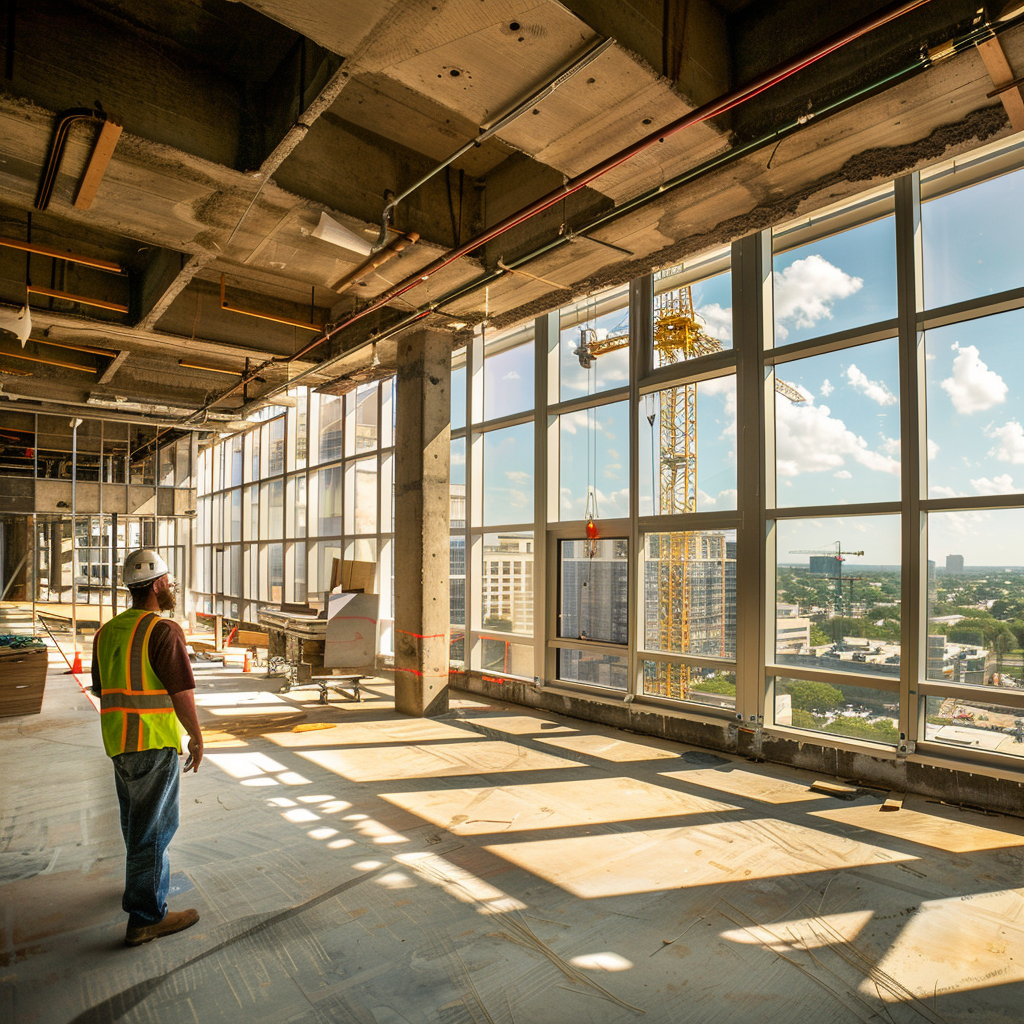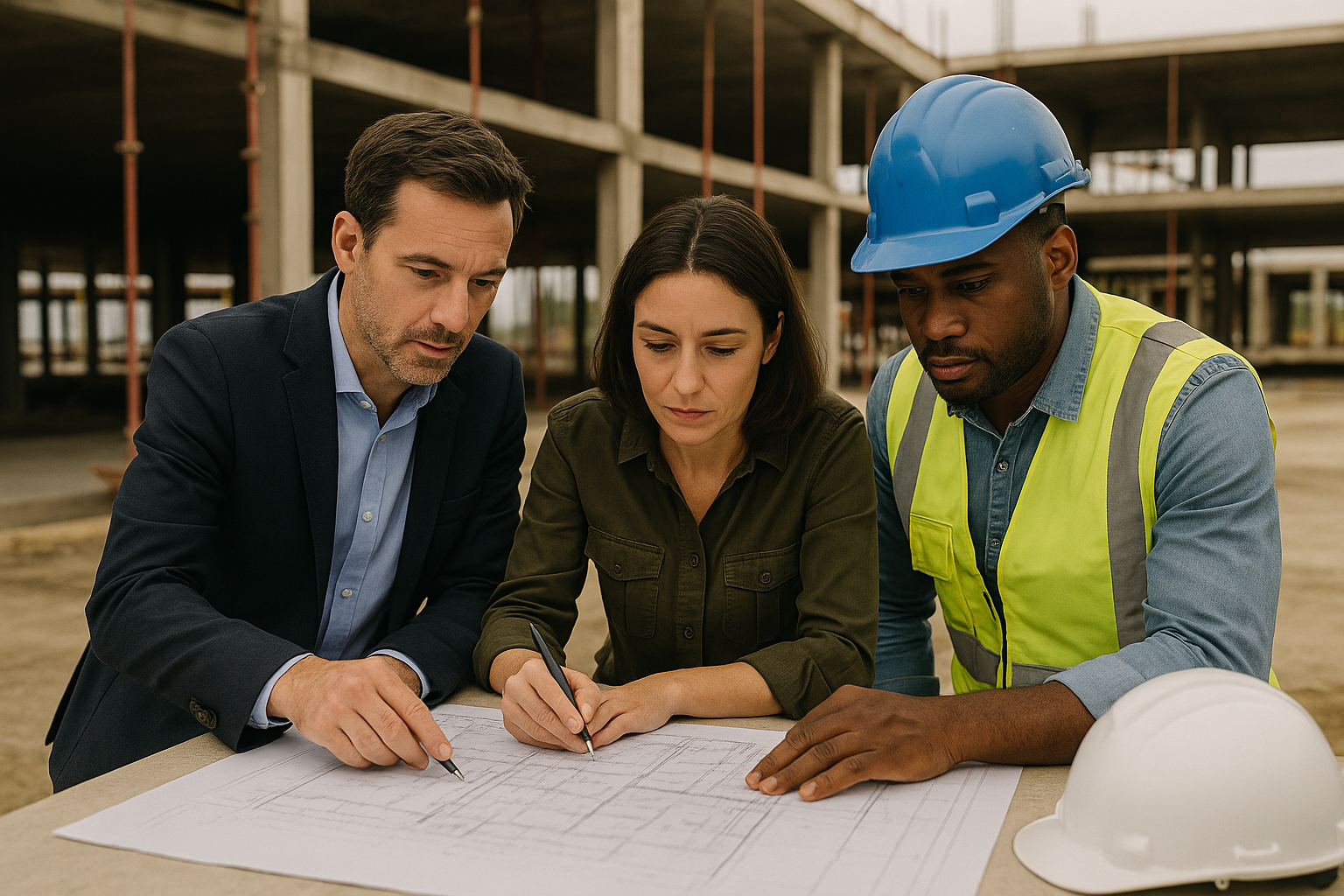The commercial construction industry is evolving fast, and 2025 is shaping up to be a defining year. Whether you’re a developer, investor, architect, or contractor, understanding the driving forces behind new development is essential to staying competitive and relevant.
From macroeconomic conditions to shifting cultural expectations and emerging technology, this year’s trends aren’t just shaping what gets built — they’re transforming how it gets built.
1. A Return to Urban Core Projects, But Smarter
After a brief pandemic-driven exodus from urban centers, developers are rediscovering the value of the urban core. But this return comes with a twist: it's not about density for density’s sake. Instead, mixed-use developments with flexible space configurations, wellness-focused amenities, and smart infrastructure are leading the charge.
Key Drivers:
- Renewed demand for live-work-play environments
- Corporate shifts back to in-office models (hybrid-focused)
- Transit-oriented development incentives
2. Life Sciences and Healthcare Construction Surge
Fueled by biotech expansion, aging populations, and public-private healthcare partnerships, the life sciences and medical sectors are experiencing explosive construction demand. Expect more clean rooms, labs, outpatient facilities, and biomanufacturing hubs to break ground in 2025.
Key Stats:
- Life sciences construction spending increased 15% YoY from 2023-2024
- 4 of the top 10 U.S. metros are investing heavily in health/life science clusters
3. High-Performance Industrial is the New Gold Rush
Last-mile delivery centers, cold storage warehouses, and automated logistics hubs are continuing their meteoric rise. E-commerce is not just a retail trend — it’s a real estate revolution. And in 2025, industrial construction is more tech-enabled than ever.
Emerging Trends:
- Robotics integration in warehouse layouts
- Sustainable materials and solar-ready roofs
- Demand in secondary markets (e.g., Pittsburgh, Charlotte, Austin)
4. The Rise of ESG-Driven Building Mandates
Environmental, Social, and Governance (ESG) metrics are no longer a niche concern. Fortune 500 tenants and government agencies are enforcing stringent carbon, wellness, and DEI standards for the buildings they occupy. Developers are responding with smarter energy systems, low-impact materials, and certifications like LEED, WELL, and Fitwel.
Implications for Builders:
- Mandatory ESG compliance in public-private projects
- Integrated MEP and smart HVAC planning during preconstruction
- Increased demand for ESG reporting software and consultants
5. Financing is Tight — But High-Quality Projects Are Getting Funded
Rising interest rates and cautious lending haven’t stopped all projects — just the speculative ones. Banks and institutional investors are leaning into projects with:
- Long-term anchor tenants
- High-certainty cost projections
- Proven development teams with strong reputations
This means builders who can deliver on-time and on-budget (like ABS Building Integrators) are more valuable than ever.
6. AI and Preconstruction Tech Are Going Mainstream
AI is no longer on the sidelines. In 2025, more contractors and developers are deploying artificial intelligence for everything from early budgeting to risk modeling. Expect continued growth in:
- AI-powered estimating and quantity takeoff
- Predictive scheduling and labor forecasting
- Generative design and automated value engineering
7. Labor Shortage Continues, Upskilling Becomes Essential
With over 500,000 unfilled construction jobs expected in 2025, workforce development is at a breaking point. Leading firms are investing in:
- Internal apprenticeship and mentoring programs
- AR/VR jobsite training
- Partnerships with trade schools and community colleges
Those who can train and retain their own talent will have a major edge.
Final Takeaway: 2025 Favors the Strategic Builder
In a market defined by cautious capital, high standards, and technological disruption, the edge goes to companies that are nimble, knowledgeable, and well-resourced. Firms that self-perform key trades, embrace tech early, and navigate regulations with ease will lead the industry forward.
If you’re a stakeholder in a large-scale commercial project and looking for a team that’s already operating at this level — ABS Building Systems Integrators is ready to lead the way.
Need help navigating your next build? Contact ABS Building Integrators to discuss how we can support your 2025 construction strategy.




